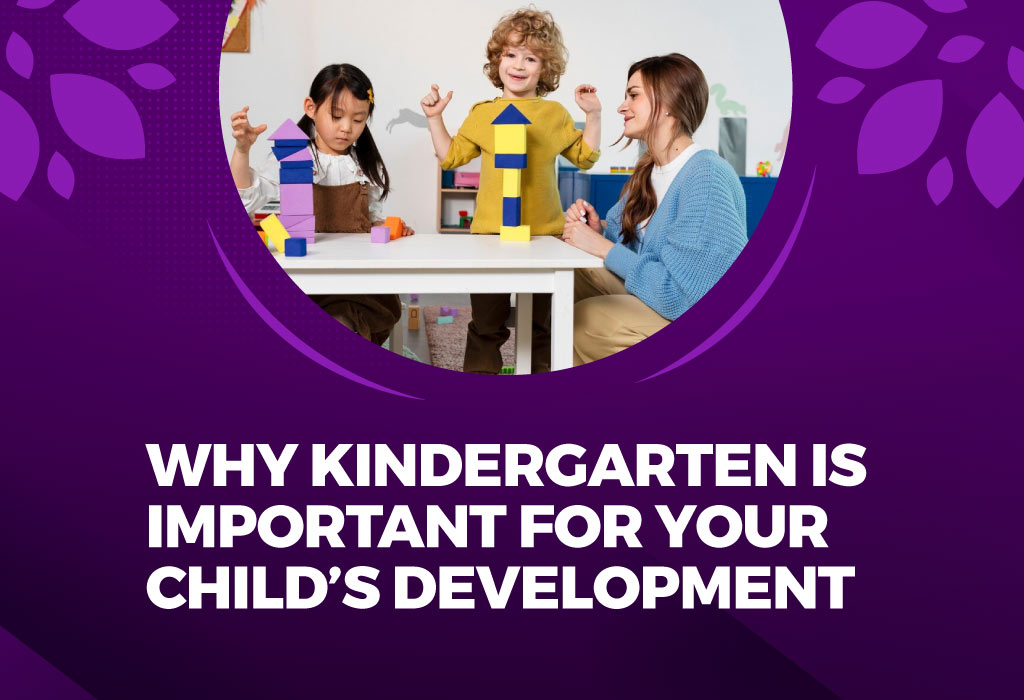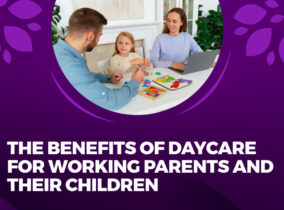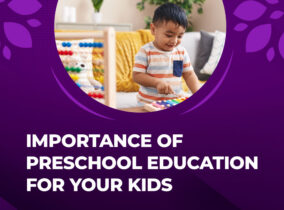Why Kindergarten is Crucial for Your Child’s Early Development

In India alone, millions of children attend kindergarten every year. Kindergarten learning is the first step of early childhood education in your kid’s life. Your child’s development in kindergarten includes a wide range of skills, including physical, emotional, social, language, and literacy.
Vishwankar Public School is a privileged preschool in Vedapatti that has the best curriculum, preparing your children for elementary school, middle school, high school, and everyday life.
What does a Kindergarten Curriculum Contain?
A kindergarten program should open your child’s mind, helping them learn about the world while understanding new information in a more enjoyable way. An effective kindergarten curriculum will provide the following lessons for children:
1. Reading
2. Writing
3. Basic Maths
4. Arts and Science
5. Extracurricular Activities
6 Reasons Why Kindergarten is Important for Your Child’s Development?
When it comes to your child’s early education, kindergarten is more than just a place for them to learn their ABCs and 123s. It is where they start building essential life skills that will shape their entire future. The importance of kindergarten becomes evident as it significantly impacts your child’s development.
Let’s dive into 6 key reasons why kindergarten is necessary for your child’s growth!
1. Discipline:
As we know, “Discipline is the root map for success in life.” Its about helping your children understand boundaries, routines, and responsibilities.
One of the key benefits of kindergarten is that it often provides your child with their first experience in a structured setting. This is where they begin to understand the importance of following rules, listening to instructions, and respecting others like teachers. It teaches them basic life skills such as staying organized, completing tasks, and waiting their turn. These early lessons in discipline lay the groundwork for future success in school and life.
2. Oral Language
The good news about building oral language skills in kindergarten is that it’s really FUN!
In kindergarten, your children are exposed to a variety of new words, sentences, and conversations, which helps them build vocabulary and improve their speaking skills. An example of a partner activity for oral skills is to have two kids look at one picture and describe it to each other. As the students engage in imaginative play, they naturally make up conversations with their peers.
3. Reading
Teach kids that “There is no friend as loyal as a book”. The foundation for reading is laid in kindergarten.
In kindergarten, we teach sound recognition (phonics learning), alphabet sequence, letter formation, building word skills, and understanding word meanings. Stories open new doors, encouraging kids to imagine and think creatively. Book reading will help your kids concentrate better and stay attentive longer, which will create a pathway for better academic growth in schools.
4. Writing and Math
Writing and math are two main pillars of academic foundation for your children in kindergarten. In terms of writing, they start with simple tasks like tracing letters and numbers, which helps with hand-eye coordination. They also begin to understand how to form words, sentences, and even short stories as they grow more confident in their abilities.
Math concepts like counting, sorting, and basic addition or subtraction are introduced in a playful way. Through hands-on activities like building blocks, puzzles, and counting games, Kindergarten provides the building blocks for numeracy, ensuring your children are comfortable with numbers and basic math concepts as they enter higher grades.
5. Physical, Social, and Emotional Growth
The importance of play in kindergarten involves activities like playing outside, doing puzzles, writing, drawing, and working with clay, which help children build healthy bones and muscles, improve focus, and reduce stress. Doing that develops children’s finger and hand control.
Social development will help your kid interact with anyone at ease. Teachers support children’s social skills in kindergarten by helping them work together, include each other in activities, make friends, and resolve disagreements in a smooth way.
Emotional development in children makes them understand their own feelings and the feelings of others. Kindergarten teachers will help your child talk about, express their emotions and show concern for others
6. Encourages Creativity and Curiosity
Kindergarten is a place where your kid’s creativity and curiosity are allowed to flourish. Through art, music, storytelling, and imaginative play, children explore their creativity and learn to think outside the box. This is where their natural curiosity is nurtured, and they are encouraged to ask “why” and “how.”
Conclusion
Since every child is unique, they all approach kindergarten differently, like all parents. But a good kindergarten atmosphere will make kids look forward to going to school every day, and that love for school will create a huge interest in education for the rest of their academic career.
So, make the right choice and help your child take the first step towards schooling through Kindergarten School in Vedapatti.




